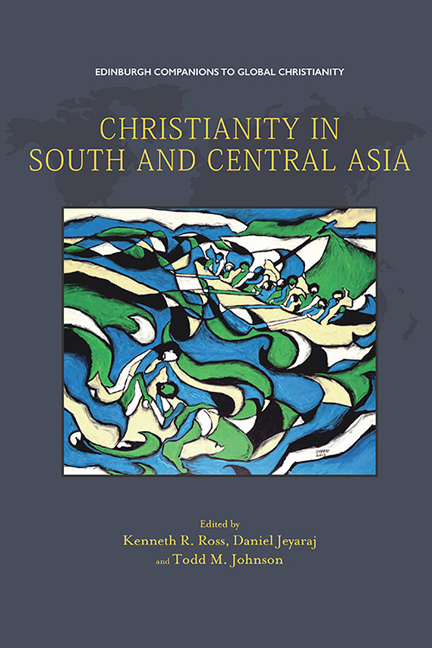Faith and Culture
Published online by Cambridge University Press: 30 April 2020
Summary
Considering faith and culture in relation to Christianity in South and Central Asia conjures up multiple understandings, meanings, historical experiences and contextual perspectives. The major cultural changes occurring today make it critically important to revisit and reassess experiences of societies in meaning-making. For the purposes of this essay, faith is understood as the subjective experience of an individual in relation to a personal God, as expounded by sacred texts and affirmed through generations in codified traditions and inspiring rituals. The broad phenomenon of religion serves as the basis for the two terms ‘faith’ and ‘culture’ in their manifestations and meanings for societies. Complex as they are, both categories find critical expression in South and Central Asia, particularly in relation to Christianity in its history and practical expression of its values. Christianity in this part of the world encountered profound challenges from established faith traditions and ancient cultures. By engaging these postures of resistance, Christianity formulated its distinct identity and traditions. The plurality of cultures, faith traditions and socio-economic realities provides an opportunity for Christians to enlarge their theological self-understanding.
Asia is a continent where the roots of many ancient civilisations can be found. South and Central Asia forms a sizeable region, with a myriad of cultures expressed in multiple languages among diverse groups of people and ethnicities. World religions such as Hinduism, Buddhism, Jainism and Sikhism have their roots in Asia. Apart from these, there are hundreds of indigenous, oral-based shamanic religiosities in these regions. Islam, albeit an imported and imposed religion, has a significant influence upon the cultures, with a sizeable population and a long history of creative presence in the region. South Asia particularly provides a religio-cultural canvas composed of tolerance, symbiosis and, at certain periods, severe contestations between different religions. For instance, both Judaism and Zoroastrianism were welcomed when they found their way to India through trade or persecution.
Of the two Asian regions, socio-economically South Asia presents both prosperity and abject poverty, embedded in varying degrees of social conservatism, secularism and intellectual traditions. Sacred scriptures such as the Sruti corpus of the Indic religion – the Vedas and the Upanishads – are reified texts traced to antiquity and are a key source for often rigid cultures sustaining faith for many devout adherents.
- Type
- Chapter
- Information
- Christianity in South and Central Asia , pp. 303 - 314Publisher: Edinburgh University PressPrint publication year: 2019



